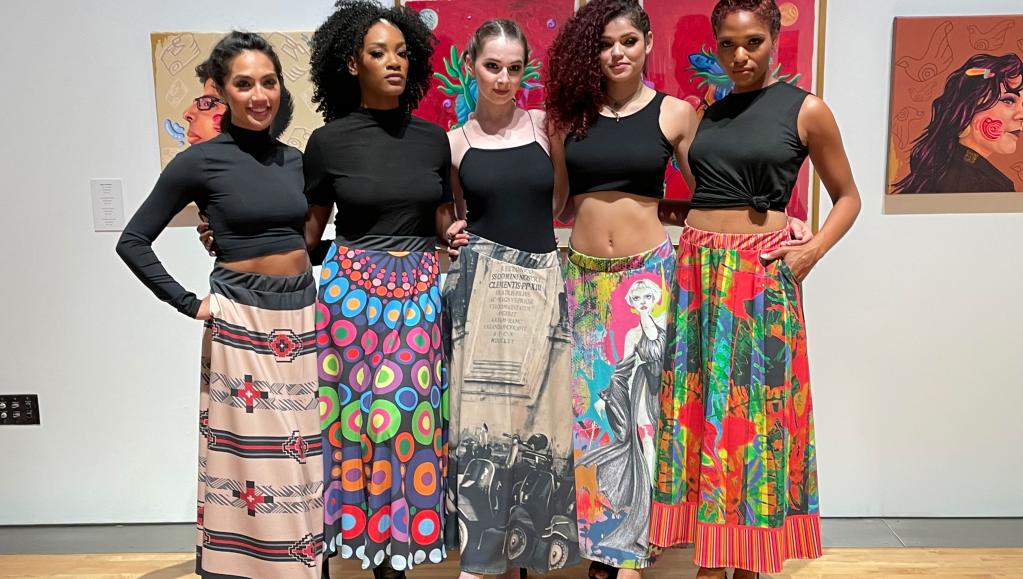A visit of the Innovation center to realize the possibilities
This strategy of small batches and unique products required a reinvention of the process, as well as an ability to connect the dots between the different systems and managing data from design to the final product. FABRIC always wanted to support 21st century manufacturing for smaller, digitally-native brands, and when they saw Lectra’s Innovation Center and Microfactory in New York City—they were able to realize the possibilities.
Upon visiting the Innovation Center, co-founder Sherri Barry remarked how seamless and integrated the process was and imagined the possibilities for her own customers. She noted the ability to “start with any surface design, have it patterned in Gerber AccuMark 2D/3D, visualized with a 3D sample, digitally printed, then cut with an IoT-enabled cutter and sewn, really made on-demand production a reality.”
Complete microfactory to provide cutting edge solutions
Gerber AccuMark allows the development of 2D digital patterns that can be visualized in 3D with production accuracy while avoiding the need for creating a physical sample and ensuring a perfect fit. When surface designs are involved, the images are positioned in Gerber AccuMark patterns, and then data is passed seamlessly to the Kornit Presto digital printer and accurately read and cut using the Gerber Z1 cutter with ContourVision™.
Empowering customers through industrial intelligence 2/2 FABRIC continued to fuel the expansion of their technology suite by including Gerber YuniquePLM, a cloud-based PLM system that helps to manage all the orders for their many brands. It also helps keep the data seamlessly connected to Gerber AccuMark and have it updated in real time.
Adopting technology also helped FABRIC successfully pivot during the pandemic to large-batch production of PPE thanks to having a fully integrated technology-based system.
Because of their reliance on Lectra's technology suite, FABRIC and The Fashioneer’s complete microfactory are now able to provide cutting edge solutions and much needed resources to up and coming brands and designers nation-wide and may someday rival the traditional fashion hubs of the world.

